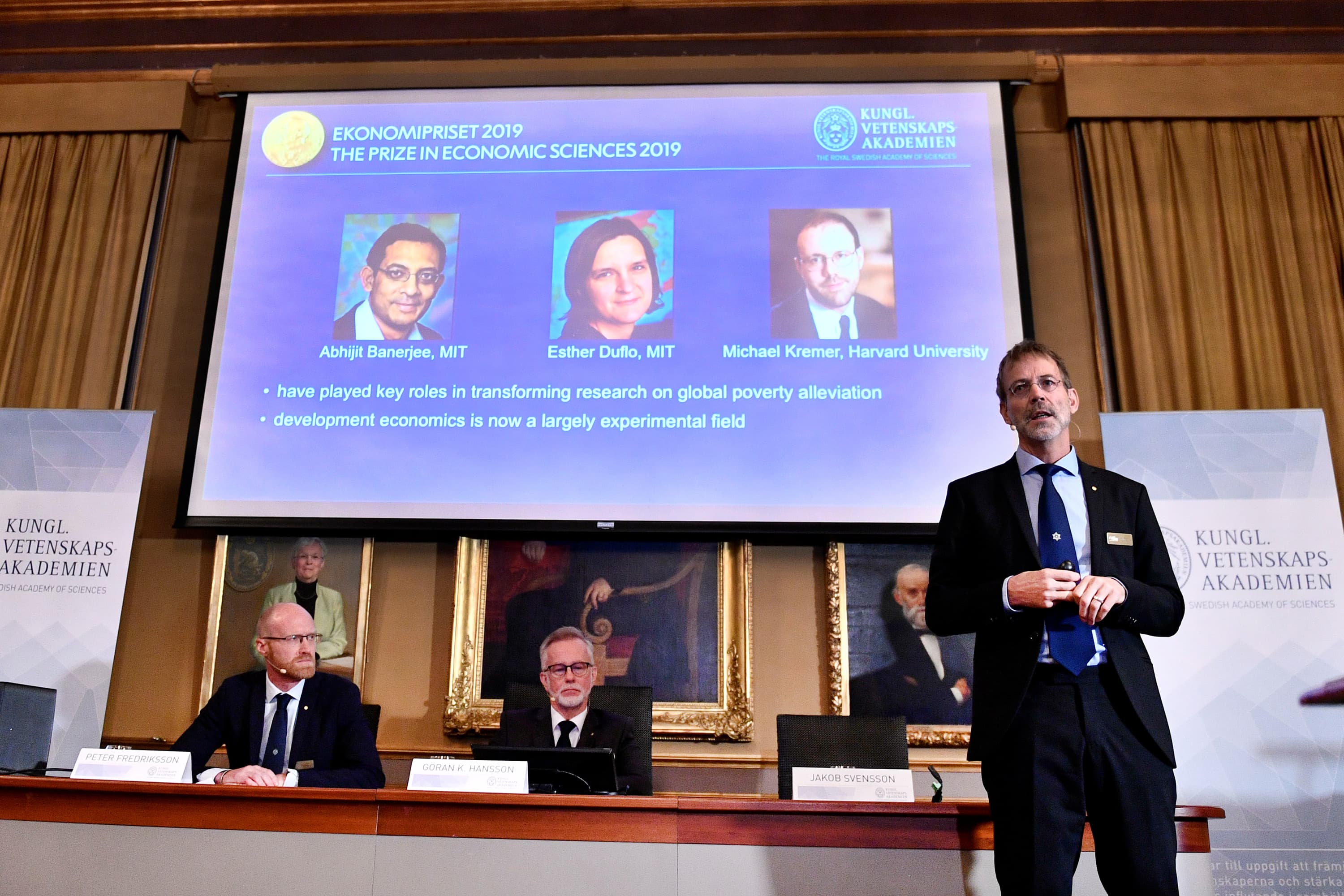This post was originally published on this site

The 2019 Nobel prize in economics was awarded to economists Abhijit Banerjee, Esther Duflo and Michael Kremer for their novel approach to research tackling global poverty, the Royal Swedish Academy of Sciences announced on Monday.
Banerjee and Duflo are professors at the Massachusetts Institute of Technology, where the husband-wife duo founded and oversee the Abdul Latif Jameel Poverty Action Lab, and Michael Kremer is an economist at Harvard University. The trio have made vast contributions to the study of development economics by pioneering an on-the-ground approach.
Rather than looking at poverty solely from a broad, theoretical standpoint, the three shifted the focus to smaller issues within the vastly complex problem. After isolating key areas of interest, they pioneered the model of subsequently designing field experiments to observe issues, such as poor education, in actual practice to help determine the myriad of factors that contribute to the problem.
“This new research is now delivering a steady flow of concrete results, helping to alleviate the problems of global poverty,” the statement from the Royal Swedish Academy of Sciences read. Their contribution to the field has been large, as “field experiments have become development economists’ standard method when investigating the effects of measures to alleviate poverty.”
Their research has focused on education and health care, among other things. One key study, led by Professor Kremer, centered on the most effective way to increase performance at schools in the poorest communities. Through a number of field experiments in Western Kenya, the researchers found that a lack of resources wasn’t the primary reason for under-performing schools and pupils, but rather a lack of teaching support and an overall lack of teacher accountability. Other studies have focused on everything from how price impacts parents’ decisions to give their children de-worming pills, to how mobile clinics can increase rates of vaccination, to the impact of microcredit programs.
Put simply, they draw meaningful and actionable conclusions from on-the-ground research. The WHO is among the global organizations that has made recommendations based on Banerjee, Duflo and Kremer’s findings.
“This year’s Laureates have introduced a new approach to obtaining reliable answers about the best ways to fight global poverty …They have shown that these smaller, more precise, questions are often best answered via carefully designed experiments among the people who are most affected,” the statement from the Royal Swedish Academy of the Sciences read. “In just two decades, their new experiment-based approach has transformed development economics, which is now a flourishing field of research.”
French-born Duflo, at 46, is the youngest person ever to win the coveted prize. She is also the second woman to win in the award’s 50-year history, after Elinor Ostrom in 2009.
Following the announcement French President Emmanuel Macron tweeted about the “magnificent” prize and how her research has a “concrete impact on humanity.”
Noted economist and Allianz chief economic adviser Mohamed El-Erian was among those to congratulate the winners.
“This year’s Nobel Laureates redefined the whole field of development economics, anchoring it in a solid fashion with experiment- and evidence-based approaches. They directly and beneficially impacted the everyday lives of many, as well as increasingly influencing the work of economists in many other fields of the discipline,” El-Erian told CNBC.
The prize in economics is the last Nobel to be awarded, and the recipients split equally the 9 million Swedish Krona, which is about $915,000.



